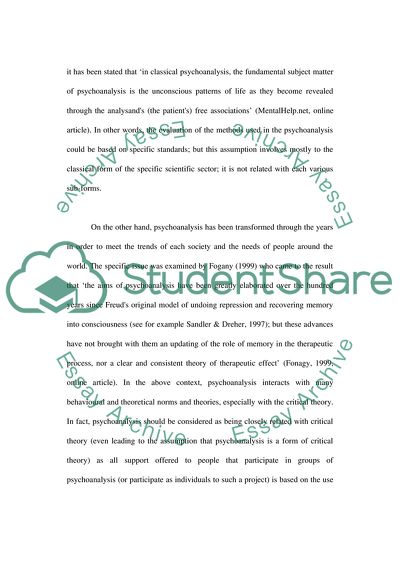Cite this document
(“In what ways can psychoanalysis be used as a form of critical Essay”, n.d.)
In what ways can psychoanalysis be used as a form of critical Essay. Retrieved from https://studentshare.org/miscellaneous/1544498-in-what-ways-can-psychoanalysis-be-used-as-a-form-of-critical-theorydiscuss-with-specific-reference-to-at-least-two-theorists
In what ways can psychoanalysis be used as a form of critical Essay. Retrieved from https://studentshare.org/miscellaneous/1544498-in-what-ways-can-psychoanalysis-be-used-as-a-form-of-critical-theorydiscuss-with-specific-reference-to-at-least-two-theorists
(In What Ways Can Psychoanalysis Be Used As a Form of Critical Essay)
In What Ways Can Psychoanalysis Be Used As a Form of Critical Essay. https://studentshare.org/miscellaneous/1544498-in-what-ways-can-psychoanalysis-be-used-as-a-form-of-critical-theorydiscuss-with-specific-reference-to-at-least-two-theorists.
In What Ways Can Psychoanalysis Be Used As a Form of Critical Essay. https://studentshare.org/miscellaneous/1544498-in-what-ways-can-psychoanalysis-be-used-as-a-form-of-critical-theorydiscuss-with-specific-reference-to-at-least-two-theorists.
“In What Ways Can Psychoanalysis Be Used As a Form of Critical Essay”, n.d. https://studentshare.org/miscellaneous/1544498-in-what-ways-can-psychoanalysis-be-used-as-a-form-of-critical-theorydiscuss-with-specific-reference-to-at-least-two-theorists.


